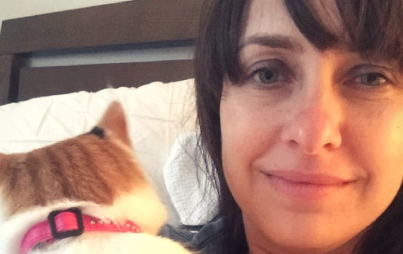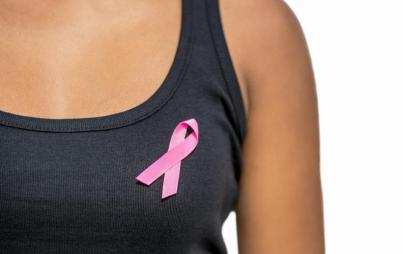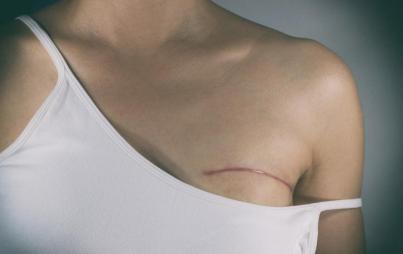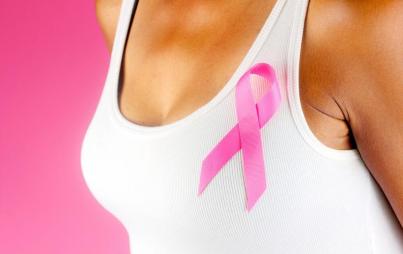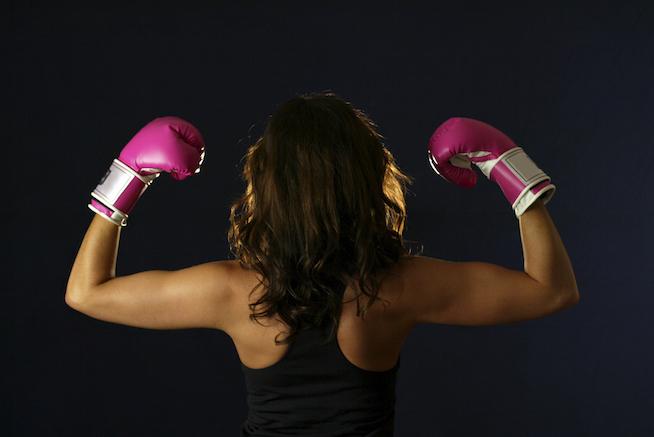
Time to put on the gloves and fight.
A text message to my mother and aunt, my two remaining direct family members:
“Not to be morbid, but can you remind me of all the cancers that we've had in our family?”
The answer came from my aunt, the unofficial family historian. She knows our genealogical charts and our medical histories.
- Ovarian cancer killed my great-grandmother and my great-great-grandmother
- My grandmother had uterine cancer and 20 years later died of a non-smoker's form of lung cancer (ironic, since she smoked for more than 40 years) and brain cancer
- My grandfather died of pancreatic cancer, just weeks after his diagnosis
- My great-aunt was diagnosed this summer with breast cancer
- So was my aunt — invasive ductal carcinoma is the official diagnosis. Breast cancer by any other name is still breast cancer.
- Unknown great-aunts from my grandfather's side of the family have had breast cancer. We lost track of them over time, but we don't believe any of them survived their diagnosis.
All of them are from my mother's side of the family.
In my family, it's not a matter of if cancer will affect one of us, but when. Right now, breast cancer has center stage in our lives.
When my aunt, my mother's baby sister, a woman who only just turned 51 this year, was diagnosed with breast cancer, it hit the family like a bolt of lightning. We'd had several years free of funerals (my grandmother, father, and grandfather all died within five years of each other, all from terminal illnesses, two from cancer) and I think we thought we were finally safe from major illnesses.
My mother, aunt, and myself have seen too many people we love die of cancer. The “female” cancers have touched every generation but mine so far. As a result, we don't play around with our health — or at least, we try not to.
If my aunt hadn't been encouraged by one of one of hers doctors to get a mammogram, and she hadn't seen it through — thanks to scheduling conflicts and everything else life threw her way — she wouldn't have received her diagnosis this summer. I don't even want to think of the possibilities if she'd delayed any longer.
She didn't tell me until she knew more and had a possible solution. To say I'm close to my aunt, only 16 years my senior, is an understatement. She embodies what a good aunt can be — best friend, butt kicker, and a safe adult to talk to in a world of parental expectations and worries. And here she was, diagnosed with the one disease that my mother, she, and I have all accepted as part of our possible fate in life. Accepting it as a possibility doesn't make the news any easier to handle.
At the end of the worry and a flurry of doctor's appointments, she had a plan of action — double mastectomy with reconstruction. We could only hope and pray it hadn't spread so she wouldn't have to go through chemo or radiation.
A few months later, she's got two new boobs and so far has been given a clean bill of health. In our family, we joke and laugh during a tragedy — our black, dark humor has seen us through many a hospital bedside and funeral. We can cry or we can laugh, and we'd rather laugh.
My mother and I are no fools. There's no way to guard against every cancer. All you can do is monitor your own health and take the best care you can. This year, though, my mother will take the BRCA genetic screening for breast cancer. If she's negative, it's one less thing to worry about — for both of us. We're not safe from cancer in general (one look at our history tells us that) but this one form of cancer might not be our concern.
However, if she's positive, a few things happen.
I'll take the test to determine where I stand.
She'll have to make a choice, in a range of options from doing nothing all the way to double mastectomy and reconstruction.
We've talked about what we'll do if we're positive, and we're in agreement on this one. Two new boobs are a better option than waiting to see if breast cancer comes knocking in a few years.
As for the other cancers, well, we'll continue to hope for more tests, more options, and maybe one day, even a cure. But we're pretty realistic about it. Cancer is a fact of life for us. Thanks to all the research done for breast cancer, at least we have a few options that our grandmothers never had.



